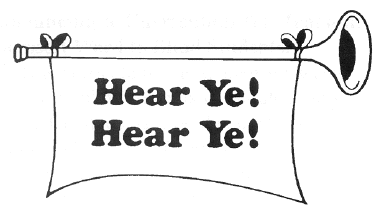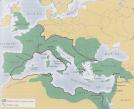LUTHER 1527 Arianism

 LUTHER 1527
LUTHER 1527Karlstadt lets “body” remain body, and bases his position on the touto. Others torture the text thus: “Take and eat; my body, given for you, is this,” viz. a spiritual food. (The view of the Silesians Caspar Schwenkfeld and Valentine Krautwald. The former, a nobleman, had veered away from Luther in 1525 and had won the support of Krautwald, a learned canon at Liegnitz. He sent a letter of Krautwald to Luther in October, 1525 (WA, Br 3, 631 ff.; Corpus Schwenckfeldianorum, 2, 194–209), and brought several other treatises when he visited Wittenberg in December, 1525 (cf. S-J 2, 361, 367, 371; Corpus Schwenckfeldianorum. 2, 235–282). While Luther was writing “This Is My Body, ” he received a lengthy unpublished treatise by Schwenkfeld, Ground and Cause of the Error and Controversy Concerning the Lord’s Supper, February (?), 1527 (Corpus Schwenckfeldianorum, 2, 445–580); Luther attacked it in Confession, pp. 288 ff., below.) These also let “body” be body, and yet are one in faith with him. Others crucify the sacred words thus: “Take and eat; that which is given for you is my body.” (The view of “Konrad Ryss,” apparently a pseudonym for John Landtsperger, a former Carmelite of Augsburg, who in 1527 came to Switzerland, took part in the Bern Disputation, 1528, and settled there, dying apparently in 1529. Cf. WA 19, 459, n. 1 and WA, Br 4, 43, 44, n. 14.) So many factions and heads does this single sect have already, though they agree on the main point! (In a passage especially instructive for Zwingli’s conception of church unity (Reply to Billican. C. R. 91, 901 ff., cf. 918), Zwingli accused the Lutherans of disunity despite their claim to stand simply upon the plain words of Scripture, for some said the bread “is Christ’s body,” others “under the bread is Christ’s body,” and still others “in the bread”—which Zwingli claimed to be sheer contradiction. Meanwhile he boasted, “What discord will anyone truly find among us?” There are verbal differences, he conceded, but “the same opinion on the main point.”) Yet the Holy Spirit must be in all of them, as they are always boasting everywhere; and in order to point out proofs and arguments, he must not only speak diversely, but even be self-contradictory and at variance with himself. But he clearly confesses thereby that one errs as much as the other, since none of them holds the Scripture as it reads, and no one can prove that it is to be understood in any other way than as it reads. . -Martin Luther
Arianism
The Father alone is God; therefore he alone is unbegotten, eternal, wise, good, and unchangeable, and he is separated by an infinite chasm from the world. He cannot create the world directly, but only through an agent, the Logos. The Son of God is pre-existent, before all creatures, and above all creatures, a middle being between God and the world, the creator of the world, the perfect image of the Father, and the executor of his thoughts, and thus capable of being called in a metaphorical sense God, and Logos, and Wisdom. But on the other hand, he himself is a creature, that is to say, the first creation of God, through whom the Father called other creatures into existence; he was created out of nothing (not out of the essence of God) by the will of the Father before all conceivable time; he is therefore not eternal, but had a beginning, and there was a time when he was not.
HISTORY OF THE CHRISTIAN CHURCH Schaff Volume 3 NICENE AND POST-NICENE CHRISTIANTY A.D. 311-600
(Page 645)

0 Comments:
Post a Comment
<< Home